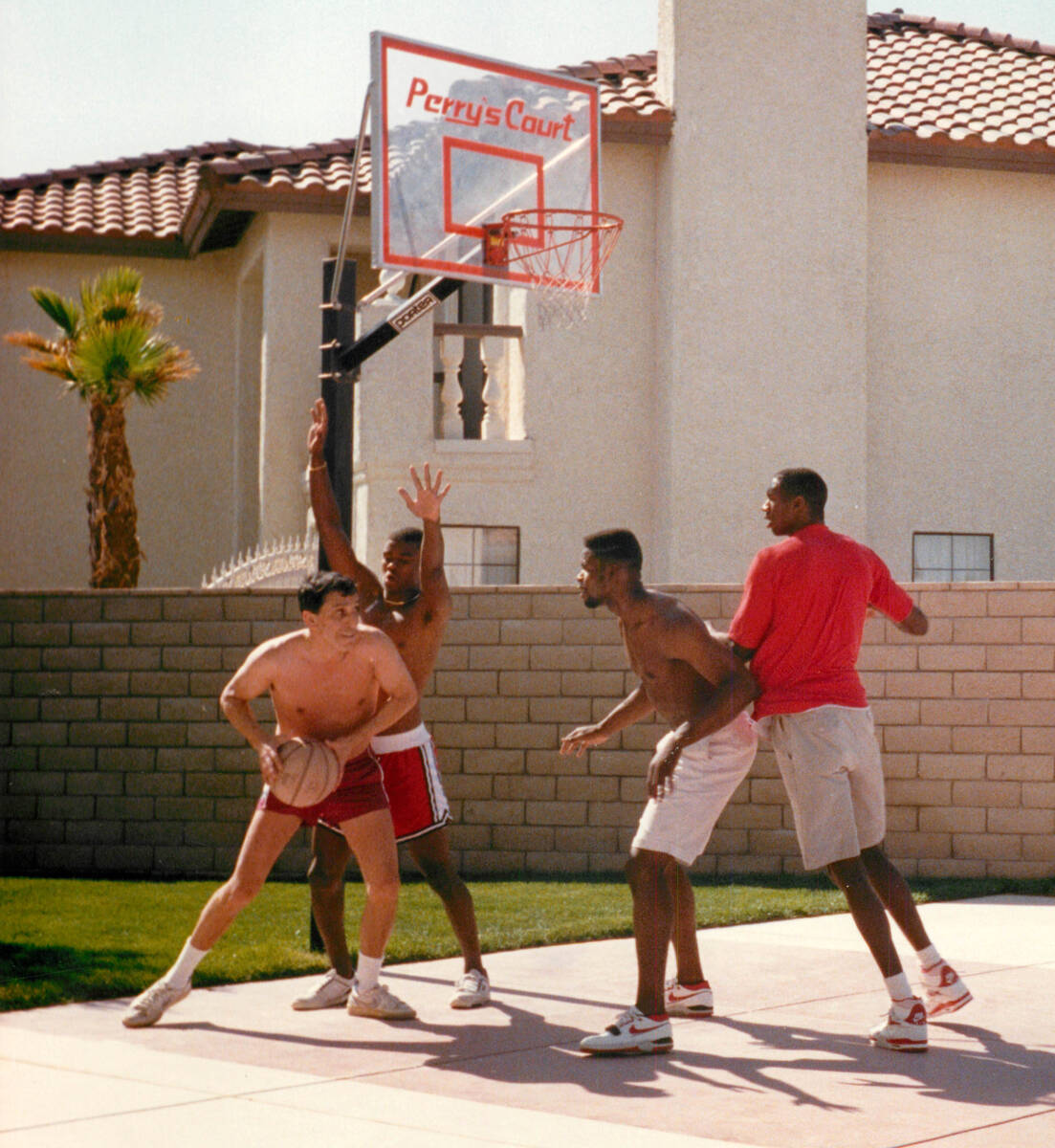Former Control Board worker, ‘Fixer’ and a woman are in ‘Black Book’
Gang members, mobsters, cheaters, sleight-of-hand artists, smash-and-grabbers and even a pimp. There’s a broad mix of folks on Nevada’s List of Excluded Persons.
While Nevada’s “Black Book” doesn’t generate as many headlines as it did years ago, it still fascinates the public with the notorious nature of what they did to get on the list of those banned from the state’s casinos.
Here are some accounts of some of the notorious people on the list based on interviews, hearing transcripts and news archives.
Ronald Dale Harris
By all accounts, Ronald Dale Harris is brilliant.
A computer programmer who worked for the Nevada Gaming Control Board in the 1990s, Harris, 56, believed to be living in Las Vegas, was added to the list Feb. 20, 1997.
“That was a tough one,” said former Nevada Gaming Control Board Enforcement Chief James Taylor, “but he deserves to be on the list.”
According to an Associated Press story, Harris was arrested Jan. 15, 1995, in Atlantic City, New Jersey, after he and an accomplice used Harris’ expertise in electronics and computing to use a highly confidential computer source code to win $100,000 in a keno game at what was then known as the Bally’s Park Place Casino Hotel.
“He worked in our technology division,” Taylor said. “He got arrested in New Jersey and here for cheating, for setting up devices that he could manipulate and steal money from. There’s a lot of stories about Ron Harris, but I would say he’s one of the worst, because he’s a nice guy. But he made some mistakes, and he’s not going to be going to any casinos and shouldn’t be working for any licensees.”
Harris was accused of using the “source code” for the program that ran the keno game at Bally’s and using a duplicate processing chip to predict what numbers were likely to be selected by the computer, a New Jersey State Police spokesman said at the time.
The other man arrested, Reid E. McNeal, purchased 10 keno tickets for $10 each, choosing eight numbers on each of the tickets. All eight numbers on one of his tickets matched and he won the casino’s largest jackpot ever.
Casino officials grew suspicious when McNeal tried to collect his winnings in cash and had no identification. McNeal led them to Harris when state troopers accompanied McNeal to his hotel room to get some identification and they saw Harris with a portable computer and literature about gaming machines and keno, authorities said.
Codes like the one Harris had were so confidential that even casinos buying gaming computer programs didn’t have access to them. Regulators required manufacturers to give them source codes so they could verify that programs do what the manufacturer says they do.
The odds of correctly picking eight numbers in keno are 230,000-to-1, gaming experts say.
Harris eventually was arrested in Las Vegas on charges of larceny and being a fugitive from justice.
Harris was one of only five people who reviewed electronic games like keno for the Nevada Gaming Control Board, then-Chairman Bill Bible said at the time.
The incident resulted in the Control Board amending its internal control procedures.
The Control Board investigation determined that between 1993 and 1995, Harris and an accomplice stole thousands of dollars from Las Vegas casinos in what was one of the most successful and undetected scams in casino history.
New Jersey courts sentenced Harris to seven years in prison, but he was released after serving two. After his release, he moved back to Las Vegas but was inducted into the Black Book, assuring that he would never enter a local casino.
Richard Mark Perry
Rarely has there been so much collateral damage created by a “Black Book” inductee than in the case of Richard Mark Perry, 80, believed to be living in Las Vegas.
Known as Richard “the Fixer” Perry, the Oct. 28, 1992, inductee became notoriously famous in Southern Nevada when a picture of him in a hot tub with three members of UNLV’s 1990 basketball national championship team — Moses Scurry, Anderson Hunt and David Butler — was published in the May 26, 1991, edition of the Las Vegas Review-Journal.
Two months earlier, the 34-0 Runnin’ Rebels were ousted from the NCAA Final Four semifinals following an 79-77 upset loss to Duke University. Even though the photo was taken in 1989, years before that game, suspicions were raised over whether the fix was in.
Perry pleaded guilty in 1984 to conspiring to commit sports bribery in a 1978 Boston College basketball point-shaving scheme. He was sentenced to one year in prison.
In 1974, he was convicted of charges in connection with a Superfecta harness racing scandal at the Roosevelt and Yonkers horse tracks in New York, where jockeys were paid to end in specified orders. He was sentenced to 2½ years in prison and fined $10,000.
Perry also was convicted of tax evasion in 1996 for hiding money from an illegal bookmaking business. He was sentenced to 15 months in prison and fined $30,000.
The hot-tub photo was a bad look for UNLV and was a factor in the departure of popular head coach Jerry Tarkanian who announced he would resign after the 1991-92 season.
Hunt, Scurry and Butler played professionally overseas, but never made it to the National Basketball Association.
One thing that came out of the case was that it pushed the state to legalize wagering on the two largest collegiate athletic programs in the state, UNLV and the University of Nevada, Reno. Before that, sports books were banned from taking action on the Nevada schools’ games, but the new policy showed that regulators believed in the integrity of its system and had faith in sportsbooks to discover wagering that seemed skewed or fixed and to notify authorities.
Sandra Kay Vaccaro
Sandra Kay Vaccaro is the only woman on Nevada’s List of Excluded Persons and her presence may be due to guilt by association.
Vaccaro, 85, believed to be living in Henderson, was inducted Oct. 2, 1986, three months after her husband, John Vaccaro, was added.
John Vaccaro, who was removed from the list Feb. 18, 2016, after his death, was associated with mobsters, yet his wife remains on the list.
The Vaccaros were a part of a larger crew that used cheating devices. In the 1970s, they worked with Dennis McAndrew, also known as Dennis Nikrasch, inducted Sept. 24, 2004, and Tommy Carmichael, inducted Feb. 20, 2003.
Contact Richard N. Velotta at rvelotta@reviewjournal.com or 702-477-3893. Follow @RickVelotta on X.





















